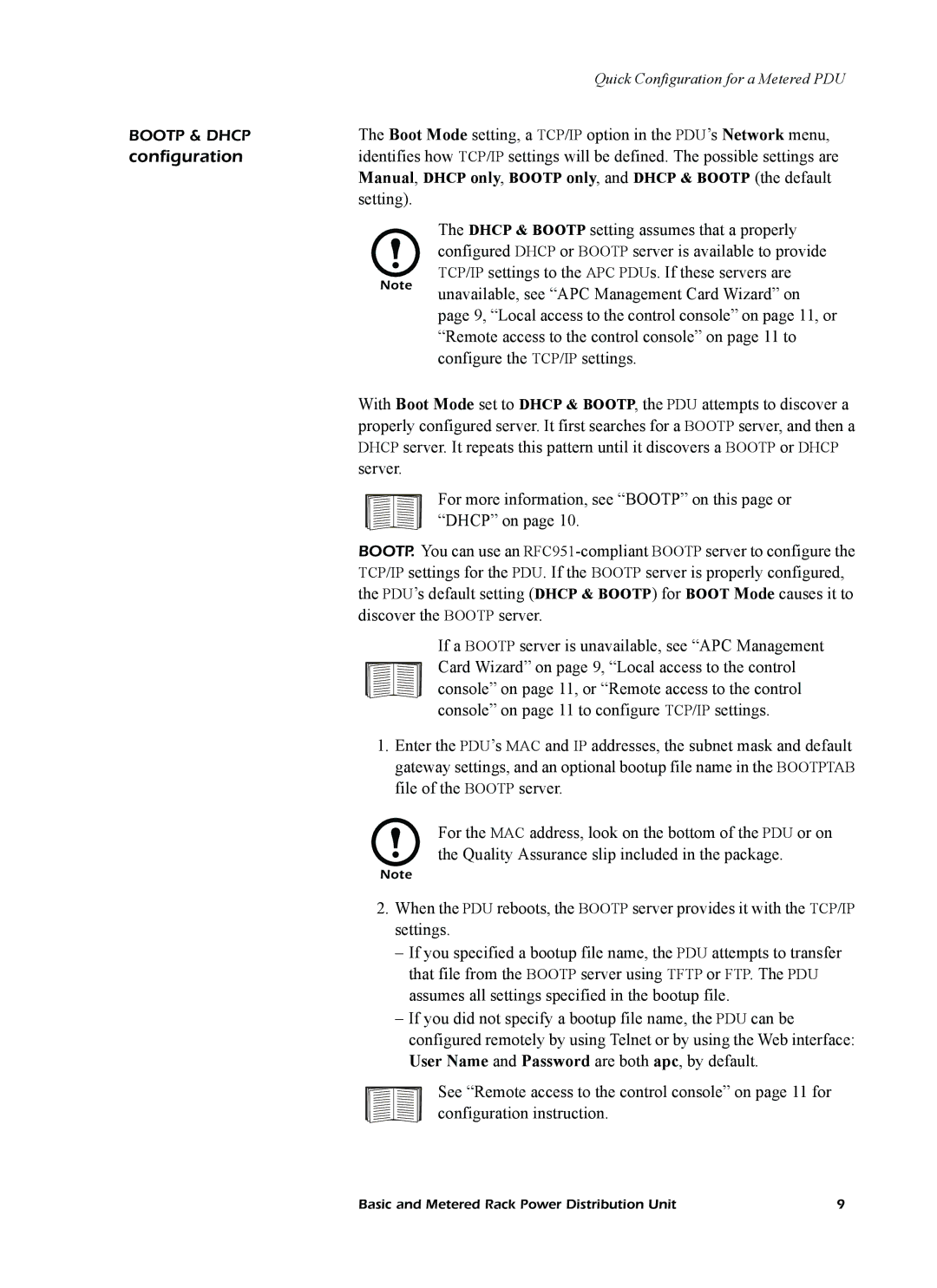
| Quick Configuration for a Metered PDU |
BOOTP & DHCP | The Boot Mode setting, a TCP/IP option in the PDU’s Network menu, |
configuration | identifies how TCP/IP settings will be defined. The possible settings are |
| Manual, DHCP only, BOOTP only, and DHCP & BOOTP (the default |
| setting). |
The DHCP & BOOTP setting assumes that a properly configured DHCP or BOOTP server is available to provide TCP/IP settings to the APC PDUs. If these servers are
Note | unavailable, see “APC Management Card Wizard” on |
| |
| page 9, “Local access to the control console” on page 11, or |
| “Remote access to the control console” on page 11 to |
| configure the TCP/IP settings. |
With Boot Mode set to DHCP & BOOTP, the PDU attempts to discover a properly configured server. It first searches for a BOOTP server, and then a DHCP server. It repeats this pattern until it discovers a BOOTP or DHCP server.
For more information, see “BOOTP” on this page or “DHCP” on page 10.
BOOTP. You can use an
If a BOOTP server is unavailable, see “APC Management Card Wizard” on page 9, “Local access to the control console” on page 11, or “Remote access to the control console” on page 11 to configure TCP/IP settings.
1.Enter the PDU’s MAC and IP addresses, the subnet mask and default gateway settings, and an optional bootup file name in the BOOTPTAB file of the BOOTP server.
For the MAC address, look on the bottom of the PDU or on the Quality Assurance slip included in the package.
Note
2.When the PDU reboots, the BOOTP server provides it with the TCP/IP settings.
–If you specified a bootup file name, the PDU attempts to transfer that file from the BOOTP server using TFTP or FTP. The PDU assumes all settings specified in the bootup file.
–If you did not specify a bootup file name, the PDU can be configured remotely by using Telnet or by using the Web interface: User Name and Password are both apc, by default.
See “Remote access to the control console” on page 11 for configuration instruction.
Basic and Metered Rack Power Distribution Unit | 9 |
